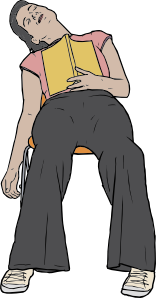I don't know how many times people have asked me where or how I got the ideas for my fantasy writing. "Where do you come up with those things?" is often how the question is posed.
Of course, the obvious answer is, "My imagination."
But there is much more to it than that. Certainly, writers and other artists do have more active imaginations than other people. The fact is, we see the world differently.
To the artist, everything is a question. And the answers are the food of creation.
I remember riding my horse on a hunter pace years ago. The idea was to ride a marked course through the countryside trying to match the time the pace riders had set earlier in the morning. It's kind of a fun ride. My horse was "into" it, ready and eager to go. But about halfway through the ride, we came upon a farmhouse set in one of the fields. Mind you, it was just a normal house, nothing special. But for several miles we'd been riding in the woods and suddenly, there was this HOUSE.
Why the capital letters? Because my horse focused his attention onthe HOUSE and was ready to spook (leap away in panic) at a moment's notice all because there was a HOUSE over there, some hundred yards away.
I managed to keep him settled, but as I did, a story started racing around in my head--the story I imagined was racing around in my horses head. That house was dangerous. Was it going to rise up on its foundations and attack us? Was it possessed? Did an evil wizard live there whose sole purpose in life was to capture and devour horses? It just looks like a house, an ordinary house, but it's actually a dragon in disguise, poised there on the verge of flight. Will it get us? "Ohmigosh, ohmigosh," my horse kept saying. "I know it's gonna get us!"
Now, I could have ridden past that house, just keeping my horse under control sd many other riders might have done, but instead, stories filled my head.
I happens all the time. Writers observe the world with a unique perspective. Simple things trigger all kinds of ideas. They pass a car for sale on the side of the road, and wonder why someone is selling it, where its been, who's going to buy it, and will it sell? They see a woman dressed in blue and wonder where she's going, why she picked out that color for the day, what's going on in her mind as she waits at the crosswalk? There's a father in the shopping mall walking along holding his little son's hand. Where are they going? Are they off to buy a present for Mom? Maybe this is the one day Dad gets to be with his son and they're headed for the ice cream parlor. How hard is it for the little boy's legs to keep pace and did you see how Dad noticed and shortened his own stride? That's love. And that sale sign in the store window....who put it there?
 Every sight, everything around can inspire a story, if we just ask the questions.
Every sight, everything around can inspire a story, if we just ask the questions.One of my friends was dreading an annual holiday party because she had so little in common with the other people who attended. They all had jobs in another profession quite different from hers and she always felt left out of the conversation. I gave her my all-purpose advice for how to spend the evening. "Ask them questions," I said. "Ask them about their jobs, ask them about their lives, ask, ask, ask. And then just listen." People generally like to talk about themselves, and their interests. I've learned hundreds of interesting things just by asking other people questions.
And many of those interesting things have ended up as parts of my stories. I haven't yet put an attack house in my novels, but you never know.
If one shows up, readers here will know where it came from.







